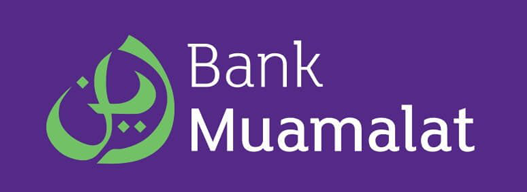TOTOSLOT4D | BRAND NO 1 SITUS SLOT 4D dan LINK MASUK RESMI BANDAR TOTO GACOR 2026
TOTOSLOT4D adalah bandar situs toto yang menghadirkan inovasi baru bermain toto togel dan toto slot via online yang dapat diakses 24 jam. Dengan teknologi terkini, setiap pemain dapat menikmati ribuan jenis permainan slot dari provider ternama dan 60 pasaran togel resmi. Selain itu, TOTOSLOT4D juga sudah mengantongi lisensi resmi dan memiliki keamanan berlapis untuk, sehingga data pemain tidak bisa bocor sedikitpun.
Sebagai link toto terbaik, TOTOSLOT4D terus melakukan inovasi agar para member tercintanya dapat bermain dengan nyaman dan aman. Tersedia dukungan livechat 24 jam yang selalu sigap untuk membantu kendala atau keluhan member. Tidak hanya itu, bagi pemain yang baru bergabung juga bisa mendapatkan bonus new member sebesar 50%. Dengan kemudahan transaksi melalui bank, ewallet, pulsa, dan qris, TOTOSLOT4D menjadi situs toto terbaik yang paling banyak diminati.
Keunggulan TOTOSLOT4D tidak hanya terletak pada layanan, tetapi juga pada permainan toto yang berkualitas. Pasaran toto yang dihadirkan dari segala penjuru dunia, tentunya juga sudah berlisensi dari WLA atau World Lottery Asccosition. Didukung dengan hasil yang real time, TOTOSLOT4D selalu memberikan system bermain yang adil dan transparan.
Keyworf Terkait :
Totoslot4d
Totoslot4d Terpercaya
Totoslot4d RTP
Situs Totoslot4d
Totoslot4d Link
Situs Toto Terbaik
Slot 4D
Bandar Togel
Toto Slot
Slot Togel

Maaf, Tidak ada data..

|
Ade Ridwan
Commented On 03 Okt 2022 09:19:54 Main di TOTOSLOT4D itu emang enak banget, fasilitas premium, layanan yang lancar, server ringan.
|

|
Arom Akmala
Commented On 23 Jan 2022 05:38:35 Mas kenapa di demo admin tidak bisa memilih apa apa? atau melihat pesanan, penjualatan, tambah produ...
|

|
Donald amrullah
Commented On 17 Mei 2021 11:38:05 pake php berapa coki gk jalan abang pasang di htdoct...
|

|
Glen Lasut
Commented On 01 Des 2020 07:37:25 Harganya turunin lagi bang.. ^_^...
|

|
Lukman Hakim
Commented On 02 Nov 2020 20:44:14 Produk yg bagus tinggal dkembangkn jdi e-commerce bukan lagi katalog shg lengkap dg keranjang blnja,...
|

|
sandi maulidika
Commented On 13 Jul 2020 21:10:43 ini php native kan?...
|

|
Rudy Handoko
Commented On 12 Jun 2020 09:30:36 izin bertanya, apakah bisa dikombinasikan dengan affiliate marketing, om?...
|

|
Agus Setiawan
Commented On 12 Apr 2020 17:39:51 Cek ongkir sudah tersedia om?...
|

|
Agus Setiawan
Commented On 12 Apr 2020 17:22:20 foto produk hanya dibatasi tiga saja atau bisa ditambah lagi mas? ...
|

|
Dede Lukman Hakim
Commented On 23 Mar 2020 09:55:49 pembayaran bisa otomatis ga?...
|
0.0 / 5
- Dapat Bonus tambahan Jika Daftar Via Akun Premium Members
- Jaminan maxwin!
- Berlisensi WLA & Keamanan Ketat
- Support Livechat 24 Jam
- SERVER
- IDN
- NAMA SITUS
- TOTOSLOT4D
- MINIMAL
- Rp 20,000
- JENIS GAME
- SLOT, CASINO, 4D, TOGEL, SPORT
- PEMBAYARAN
- ✔ BANK, ✔ E-WALLET, ✔PULSA, ✔ QRIS
- RATING
- ★ ★ ★ ★ ★ 666.043 Pelanggan








